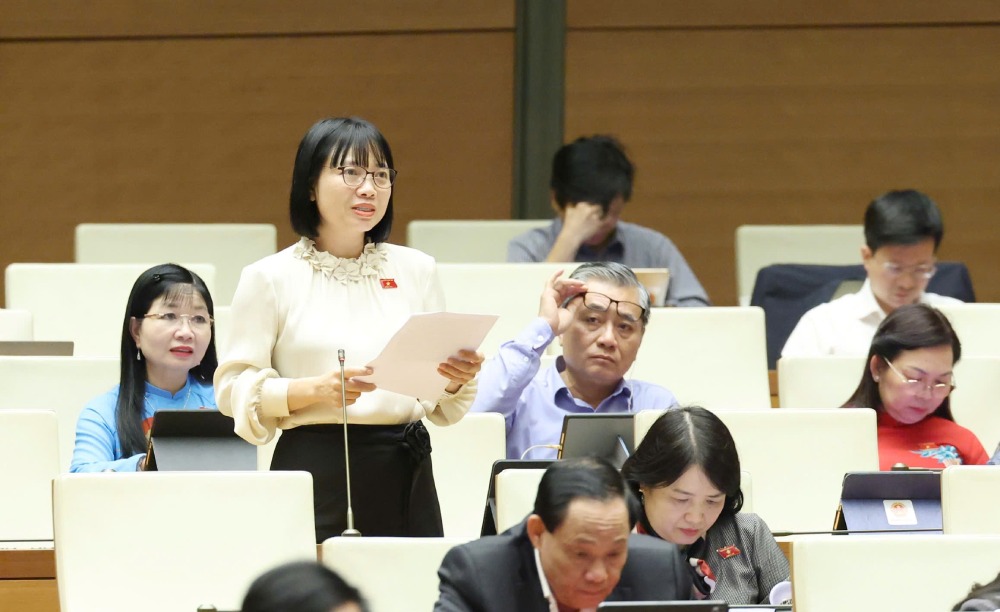On the afternoon of November 13, the National Assembly discussed in the hall the draft Law on E-commerce.
Delegate Hoang Thi Thanh Thuy (Tay Ninh delegation) assessed that the draft law has relatively fully identified the responsibilities of the three main entities in livestream sales activities including sellers, livestreamers and platforms.
However, when comparing with some real-life situations, such as cases of celebrities livestreaming to sell poor quality, inflating the uses of functional foods, or cases of using virtual seeding techniques to manipulate buyer confidence, there are still some gaps that need to be clarified.
In particular, the obligation of livestreamers not to provide false information in the draft is a principle. However, the mechanisms for pre-cast control of items that are at risk of affecting public health have not been clarified.
The regulation on storing livestream data for at least 1 year may not be enough to ensure when there is a dispute or a long-term violation is handled.
In case the livestream user provides information beyond the confirmed advertising content, there is no separate handling mechanism, especially the responsibility associated with the seller.
The platform is currently only bound by the obligation to remove violating content, there are no regulations related to controlling the proposed algorithm for prioritizing livestream display. This is a factor that is considered to be the part that creates the effect of attracting customers to buy with a virtual crowd.
The delegate suggested adding a control mechanism before broadcasting live for livestream advertising sessions for special uses for products affecting health such as functional foods and cosmetics.
Selling or livestreamers need to provide product documents to e-commerce platforms for review if conditions are met, the delegate suggested.
It is necessary to clarify the consecutive responsibilities of livestreamers in cases of providing information that is excessive or incorrect compared to the goods' records to the seller, along with additional handling measures such as banning livestream for a certain period of time.
Expand the livestream data storage period to a minimum of 2 years and stipulate the obligation to provide records, comments, and evidence to close the petition to consumers or competent authorities when there are disputes or requests for investigation.
It is necessary to add the platform's obligation to publicize the criteria for displaying livestreams, control virtual seeding comments, and have a mechanism to warn when detecting unusual interaction traffic.
It is possible to consider classifying influential streamers, or livestream sessions with large revenues to apply a tighter control mechanism, similar to the one that some countries have been implementing, said the delegate.

Delegate Nguyen Thi Viet Nga (Hai Phong delegation) said that it is necessary to review other obligations that each subject must comply with in livestream activities to ensure the rights of all parties, especially those of buyers in livestream sessions.
The delegate suggested that sellers take primary responsibility for the quality and origin of goods. livestreamers are responsible for the content they present or affirm, advertise.
The organization providing affiliate marketing services is only responsible for the scope of technical services. Marketers are only responsible within their control; do not impose obligations beyond their ability or the nature of the work
E-commerce platforms are responsible for not implementing technical measures according to regulations, and are not the content pre- control agency. Do not turn e-commerce platforms into "advertising appraisal agencies", because this is not both in accordance with their functions and impossible.











